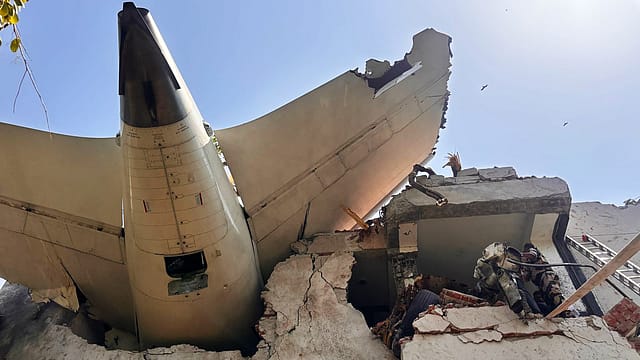Air India Flight 171 crash may trigger over ₹3,966 cr payout, among biggest in aviation insurance history
ADVERTISEMENT

The tragic plane crash of Air India Flight 171 in Ahmedabad on June 12, in which 241 people perished, has triggered one of the largest insurance claims in aviation history, Bloomberg reported, quoting sources.
According to estimates by Bloomberg, the total claims could amount to a whopping $475 million, or approximately ₹3,966.25 crore, of which the claim for the aircraft's hull and engine could amount to around $125 million, while additional liability claims, such as loss of life and other losses, could take up to $350 million.
The report also noted that the crash—one of the worst aviation disasters in India’s history—could send shockwaves through the country’s insurance and reinsurance markets, potentially driving up airline insurance costs. As a result, insurance premiums across India’s vast aviation sector are likely to rise—if not immediately, then certainly during the next renewal cycle.
According to the sources Bloomberg has spoken to, the total insurance payout for Air India could rise significantly as the presence of foreign nationals among the victims would mean claims will be assessed under the legal frameworks of their respective countries.
Insurers will begin by settling the hull claim, followed by liability claims, which are expected to take longer.
While the payouts are likely to be substantial, the immediate impact on domestic insurers is expected to be limited, the report said.
The report also quoted data from the London-headquartered consulting firm, GlobalData which shows that both insurers involved derived only about 1% of their total premium income from aviation and had ceded the majority of that to global reinsurers. In fact, Indian insurers have offloaded over 95% of their direct aviation premiums to international reinsurance firms.
As a result, the financial strain from the Air India crash will largely be borne by global reinsurers.
Yesterday, June 16, N. Chandrasekaran, Chairman of Air India and Tata Sons, in an Air India town hall, described the plane crash as 'most heartbreaking.'
"Criticisms are there, and those of us who are very passionate, who are emotional, who give our best to the job that we perform, who are working on making this airline a great airline, and who genuinely care about what kind of a company we want to build, but it's not easy to face criticisms," he had said.